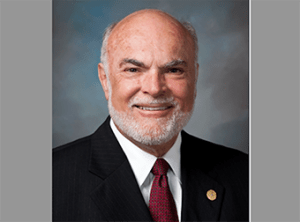Session has come to an end
Published 7:42 am Saturday, June 3, 2017
Editorial by Robert Nichols
The 85th Legislative Session has come to an end. I believe it was a successful 140 days, and we accomplished a lot for the people of Texas.
Trending
My weekly column will now revert back to a monthly column and I will continue to keep you updated as to what is happening not only at your state Capitol, but also in your state.
Here are five things that happened this week at your Texas Capitol:
- President Pro Tempore
On the last day of Session, I was honored to be elected President Pro Tempore by my colleagues in the Texas Senate. The President Pro Tem, which is elected based on seniority in the Senate, serves as acting governor when both the governor and lieutenant governor are outside of the State. I appreciate the trust my colleagues have in me and I look forward to serving in this position during interim.
- Changes to School Accountability
Last session, legislation was passed creating an A-F accountability system in an effort to provide a transparent and comprehensive way of evaluating how a school district or campus is performing. After the preliminary ratings were released, it was apparent changes needed to be made to how the ratings were created. Different plans were filed in both the House and Senate to address this need.
In the last days of session, the Legislature passed House Bill 22, which requires school districts and campuses to be rated in three categories: student achievement, student progress and closing the gaps. School districts who do well, would have the opportunity to create their own accountability system which could count for up to half of their overall grade. School districts will receive their first grades in August 2018, with campuses receiving theirs in August 2019.
- The State’s Budget
The Senate and House ended this session by fulfilling the only constitutionally required task of the Legislature, approving a $217 billion budget for the next biennium. This budget includes an increase in funding to Child Protective Services by over $500 million. Approximately $300 million was allocated from the Economic Stabilization Fund to begin much needed repairs of our state hospital system and $63 million in additional funding for the states mental health services.
Trending
The budget also includes $800 million to secure the border and hire new troopers, and an additional $2.65 billion to cover enrollment growth in the state’s education system. Also, increases funding for community colleges in the state, and provides $25 million for protective vests for law enforcement.
- Child Welfare Overhaul
Governor Abbott has signed into law four bills which would address the child welfare system in Texas. The Governor addressed the state’s child welfare crisis at the beginning of session and named it one of his four emergency items. In last week’s column, I mentioned House Bill 4, which allocates additional funding to families who serve as caregivers for abused and neglected children who are related to them. House Bill 5, makes the Texas Department of Family and Protective Services (DFPS) a standalone agency. It was previously housed under the Texas Health and Human Services Commission.
House Bill 7 focuses on how DFPS works with the court system. DFPS is directed to only remove children from their home because of allegations of violence or abuse, and not for other nonviolent misdemeanors. It also lays in place access for parents to address allegations against them. Senate Bill 11 was also signed, which lets the state create a ‘community-based care’ system by contracting with nonprofits to oversee children who are in foster care, have been adopted, or are being taken care of by a relative.
- Convention of States
Earlier this month, the Legislature passed Senate Joint Resolution 2 calling for a convention of states, which is a gathering of at least two-thirds of the state’s legislatures with the purpose of proposing amendments to the U.S. Constitution. This is possible through Article V of the Constitution, which was created to provide states with a tool to stop potential abuses of power by the federal government. These resolutions could enact term limits for U.S. officials, as well as impose spending limits and limit the powers of the federal government.
Senate Bill 21 was also recently passed by the Texas Legislature. This bill outlines the duties and limits of Texas delegates, should there be a convention of states to amend the U.S. Constitution. Texas is now the 12th state in the nation to adopt a resolution calling for a convention of states.
Robert Nichols is the Republican Senator for the 3rd District in the Texas Senate.






